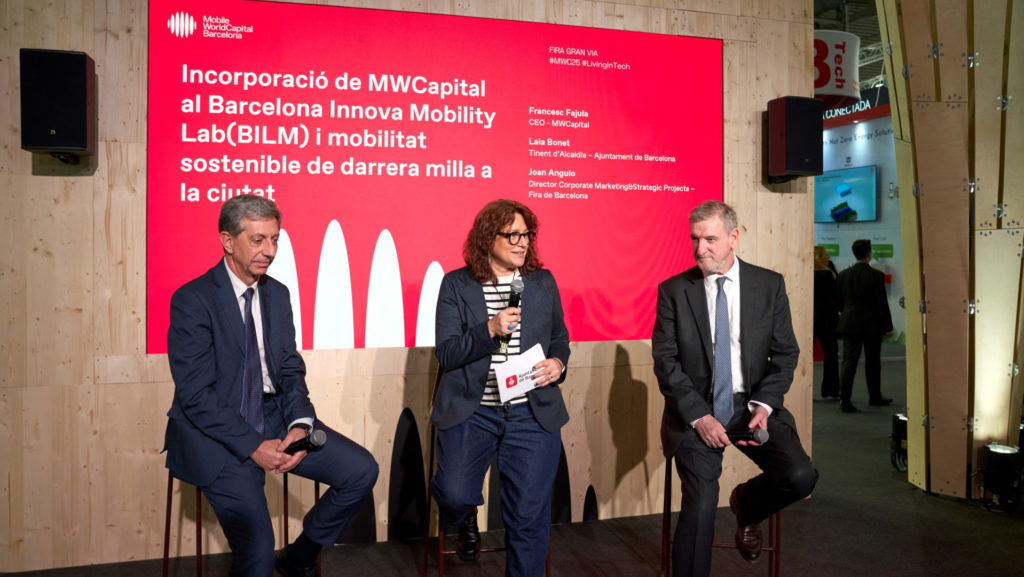
- The initiative promotes the development of technological innovations to achieve more sustainable urban logistics and forms part of the goal to reduce goods distribution emissions in Barcelona by 50% by 2030.
- The winning project will receive up to €100,000 in funding to implement the pilot in Barcelona.
- The challenge will be resolved in the last quarter of the year and follows MWCapital’s incorporation into the Barcelona Innova Lab Mobility.

12/May/2025
Barcelona City Council, Mobile World Capital Barcelona (MWCapital) and Fira de Barcelona have launched the mobility challenge “Optimising HORECA Distribution in the City of Barcelona”. This initiative aims to transform the current Urban Goods Distribution (UGD) model in the city, in alignment with the objective of cutting emissions from this activity by 50% by 2030.
The challenge is being launched by the Barcelona Innova Lab Mobility (BILM), an initiative led by the Barcelona City Council through the Mobility Department. It is supported by the city’s urban innovation agency—the BIT Habitat Foundation—along with Fira de Barcelona and MWCapital. The initiative aims to drive and facilitate the implementation of pilot trials and new projects in the field of smart and sustainable urban mobility.
With this challenge, which will be resolved in the last quarter of this year, BILM seeks to drive the development of technological solutions capable of transforming the current urban distribution model, especially in the hospitality, restaurant and catering (HORECA) sector.
Technology to promote more efficient and sustainable mobility
The solutions proposed by the innovation ecosystem should fall within four areas of action: goods distribution organisation, delivery mutualisation, scheduling, and modal shift. All proposals must incorporate an innovative and distinctive element, be high-impact, executable in the short term, and capable of replication and scaling. The challenge aims to develop a new organisation for goods flows that minimises their externalities, creating a new way of operating that groups deliveries and fosters collaboration among companies and distributors.
The initiative comes in the context of growing professional mobility in city centres. An assessment of UGD in Barcelona estimates that goods distribution accounts for 17% of the city’s mobility. This movement leads to externalities such as pollutant gas emissions (31% of PM10 and 34% of NOX), public space occupation, and traffic violations, among others.
At the same time, a study by Barcelona City Council, conducted in collaboration with Barcelona Regional, B:SM and the AMB, reveals that the HORECA sector accounts for 22.2% of UGD deliveries.
The challenge promotes public-private collaboration to identify efficient and sustainable innovations that contribute to improved mobility in Barcelona, involving companies, startups and innovation centres. Furthermore, the winning project will receive €100,000 in funding to implement its pilot in real city environments.
This is the fourth challenge launched by BILM with support from Fira de Barcelona, following previous projects aimed at reducing motorcycle accidents, optimising municipal bus fleet flow by improving dedicated lane traffic, and, most recently, minimising traffic noise pollution while supporting mobility decision-making in the city. Through such initiatives, BILM is fostering a model of intelligent, sustainable urban mobility and strengthening Barcelona’s position as a mobility innovation capital in Southern Europe.
Stay up to date about everything
Subscribe to stay up to date with the latest content from Mobile World Capital Barcelona.